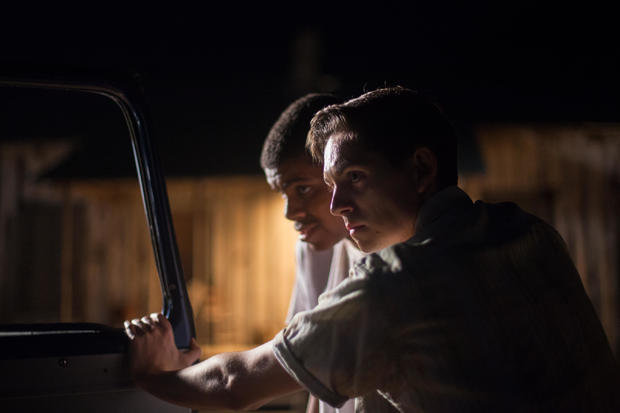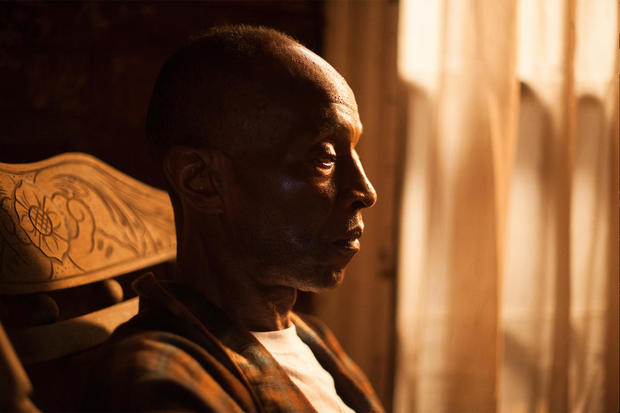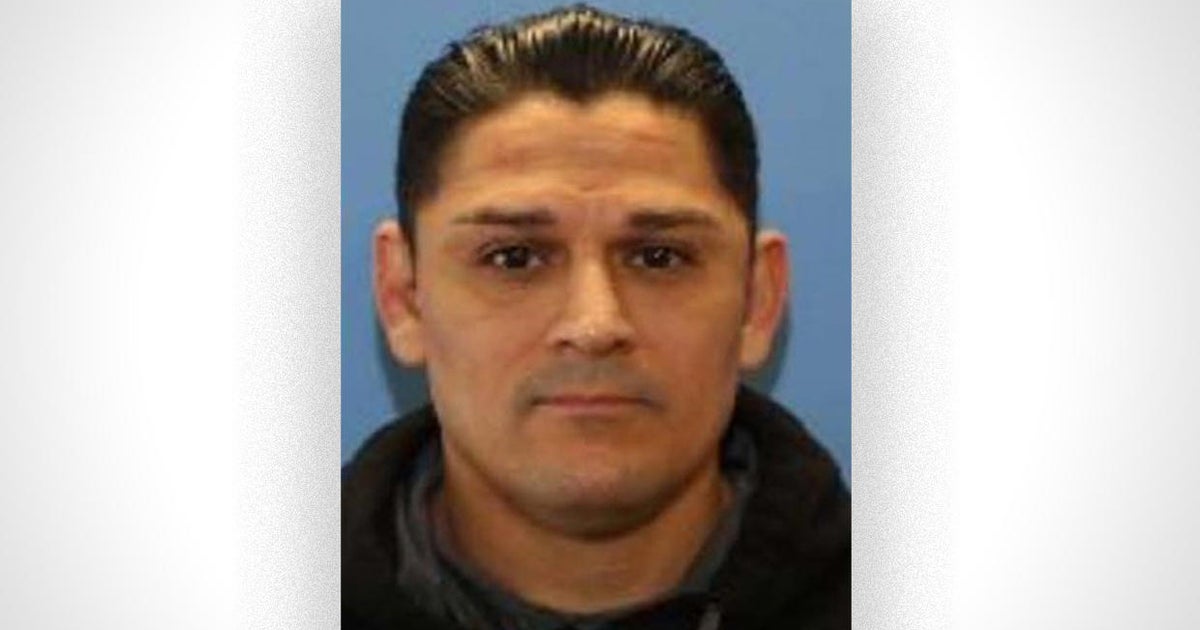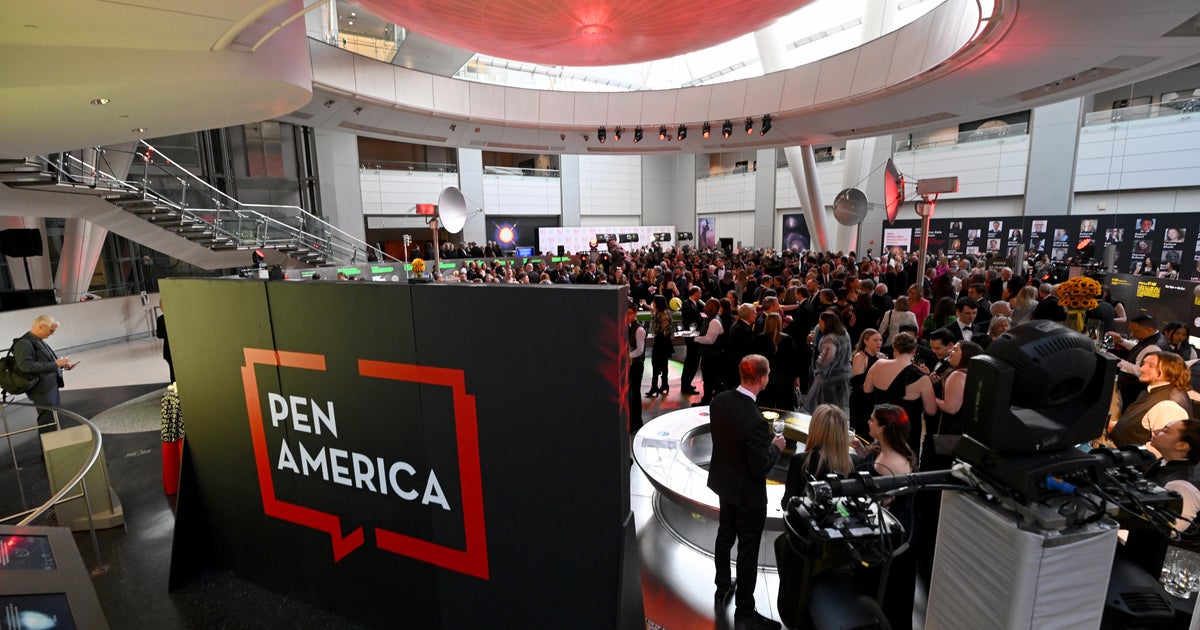Kevin Wilson Jr. keeps Emmett Till's legacy alive in his Oscar-nominated short film, "My Nephew Emmett"
When Kevin Wilson Jr., a graduate student at NYU, set out to make a short film last year for a class, he had one mission: to share the story of Emmett Till, a black 14-year-old who was brutally murdered for allegedly whistling at a white woman in Mississippi in 1955. Wilson had never anticipated that his completed assignment, "My Nephew Emmett," which tells Till's story from the perspective of his great uncle, Mose Wright, would put him in the running for an Oscar.
Wilson, who says he's busy trying to finish his thesis, could be adding "Academy Award winner" to his resume before he completes his Master of Fine Arts degree.
"This was an exercise we used to practice our craft, so I never thought that assignment would get to the point where it's nominated for an Academy Award," he says. "It's shocking."
It's a dream come true in many ways. Wilson says he's excited that the Academy is recognizing Emmett Till's story because he has been fixated on Till's life and brutal death since he was a child; Wilson's mother first showed him a famous photo of Till's nearly unrecognizable corpse when he was just 5 years old.
It was a no-brainer for him to pursue Till's story when he was gearing up to make a short film for school. Wilson points out that although there have been many documentaries about Till, there were no prominent narrative portrayals about the murder, so that's what he set out to create.
"I'd been studying it for decades, and it became a part of who I was," he explains. "By the time I was at NYU, I'd become a father, so I wanted to explore the specific viewpoint of the uncle who was responsible for Emmett's care during the time he was murdered. I hadn't seen much from his perspective ever. … I wanted to explore that feeling about having to make the decision between having your nephew abducted and murdered, or having your entire family murdered. That was something worth discovering through cinema."
Till was staying with Mose Wright in August 1955 when Roy Bryant and his half-brother, J.W. Milam, came looking for him in the middle of the night, after Bryant's wife told them Till had flirted with her. Till's badly mangled corpse was found in the waters of the Tallahatchie River three days later. His mother insisted on an open casket at his funeral and allowed her son to be photographed so people could see the brutality of his lynching. The photos helped galvanize the civil rights movement.
Wilson says his mother showed him that photo to warn him about racism.
"It was a moment that stuck with me because it was so horrific and frightening because the body was unrecognizable," says Wilson. "It didn't look like a human body, so I really appreciate her for that. By the time I started experiencing racism of my own -- I grew up in the South -- by the time that started happening, I was prepared for it. She already warned what was waiting for me."
Wilson adds that Till's murder is still not an "isolated story" today.
"It's not something that's far removed than what we're dealing with right now," he explains. "At the root of it all, it's about someone being killed and no one being held accountable for it, because Emmett's murderers were acquitted for their crimes -- murder, and they weren't tried for the kidnapping. So I thought that especially when looking at folks like Trayvon Martin, Sandra Bland, Eric Garner -- these folks are being killed and no one is being held responsible. It's about the value of a life, especially a black life in America. Until we reach a point in a way we're valuing those lives when they're cut short violently and there's not a question someone's going to be held accountable, until it's no longer a debate, these stories have to continue being told."
One thing viewers won't see on screen in "My Nephew Emmett" -- a quiet and nuanced film -- is Till's murder.
"At the time I was making the movie, I was really sick to death of seeing black people brutalized on film," says Wilson. "I wanted to tell the story, but I didn't think it was necessary to show the murder for a number of reasons. … I wanted to stay in Mose Wright's perspective, and he was not present for the murder."
Wilson adds, "It was better for us to imagine it than to actually see it."
Wilson, who filmed "My Nephew Emmett" in Mississippi, a mile away from where Till was killed, believes that the shooting location was vital for the film.
"I was very adamant about doing that because I'm a very spiritual person," he explains. "I believe that the spirits of Emmett Till and Mose and Elizabeth Wright were present with us there on set, and I don't think I could have gotten that anywhere else."
Wilson is excited for the doors that his Oscar nomination has opened. Directors Spike Lee and Kasi Lemmons were already mentoring Wilson, but now the young filmmaker has connected with power brokers in the industry. Wilson says he wants to keep the momentum going and make more films.
"I'm grateful for those blessings," he says.
Wilson says the short film's success is bittersweet, though, because the star of "My Nephew Emmett," L.B. Williams, who portrayed Mose Wright, died of cancer-related complications before the film nabbed a Student Academy Award and an Oscar nomination.
"That's been the most difficult part, because he was such a good man," says Wilson. "He gave so much to this project physically and he was dying while we were shooting. He was very sick and he was still up to 2, 3, 4 in the morning. The other thing was, he was such a kind person and he really enjoyed acting and wanted to continue doing it. I wish he was able to see how many people respected and appreciated his performance. … It was his performance and presence that made it very easy for me. He's the reason why we are where we are."
Wilson says that Williams worked through his pain -- taking breaks to rest and regain his energy -- because he cared so much about Till's legacy. The actor, who was 68 when he died, was a child when Till was murdered.
"He was very much alive during these times, so emotionally, it was difficult for him to do some of those scenes," explains Wilson. "He'd break down because he remembers this very well, and so to have someone like that was a blessing."
Wilson has two young children and a third on the way, and he says that "My Nephew Emmett" is a message to his children, so he can carry on the lesson his own mother taught him, through cinema.






